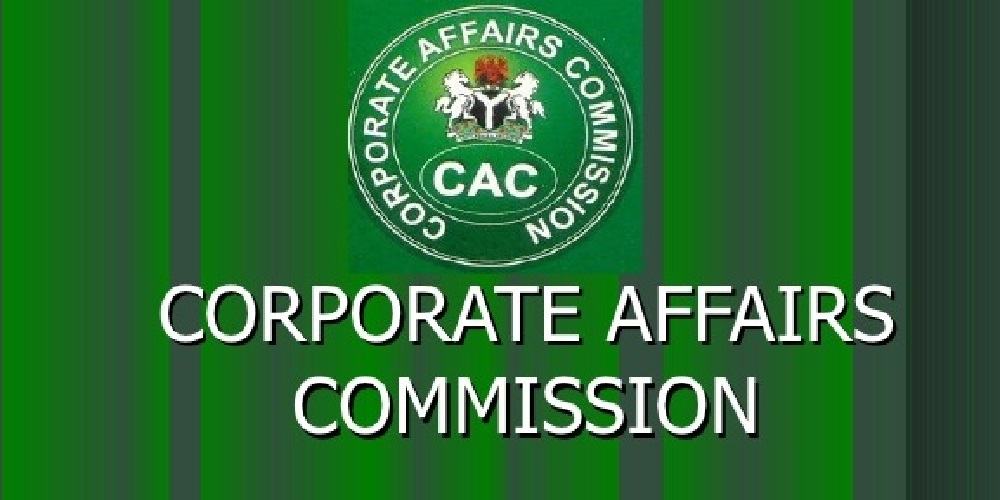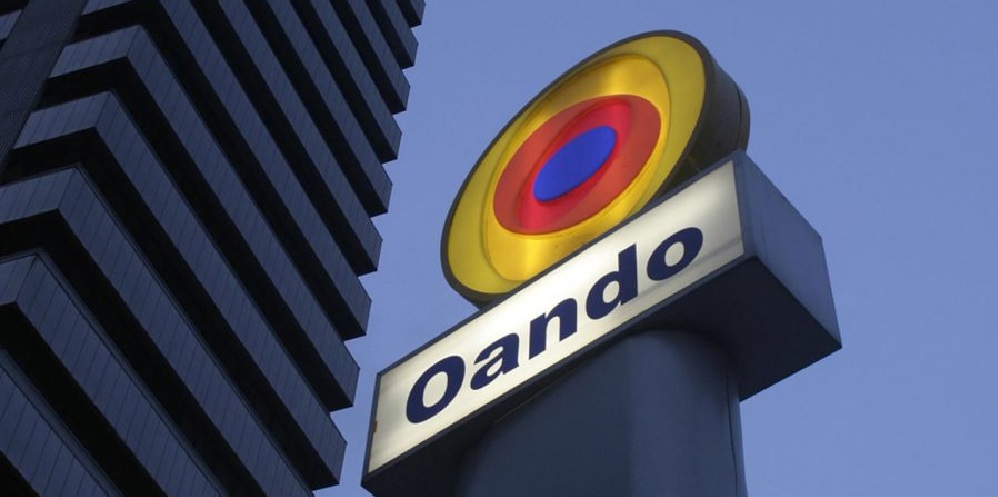Economy
EXPOSED: CBN uncovers $2.4bn forex scam

In a startling revelation, the Central Bank of Nigeria (CBN), Governor Yemi Cardoso, has disclosed that law enforcement agencies are investigating foreign exchange forwards valued at approximately $2.4 billion.
Cardoso noted that these transactions are deemed ineligible for payment.
This disclosure emerged after the Monetary Policy Committee (MPC) meeting held in Abuja on Tuesday, March 26.
The CBN governor shed light on the meticulous forensic audit conducted on these transactions, uncovering numerous discrepancies and rendering them invalid.
The CBN, upon settling certain tranches of FX backlog, encountered transactions marred by issues concerning their authenticity.
Consequently, Deloitte management consultants were engaged to conduct a comprehensive forensic analysis spanning several months to scrutinize the legitimacy of these forward-contracted transactions.
During the audit process, it was established that several transactions failed to meet the criteria for validation. Instances were found where allocations worth millions of dollars were disbursed without corresponding requests, and some transactions lacked proper documentation or were outright illegal.
According to Cardoso, “In the cause of that forensic audit, we determined that a number of these transactions did not qualify. In some cases, you had some requests, which well you actually had some allocations that were made in millions of dollars, which were never requested for.
“You also had somewhere they had no Naira and they were also allocated, you know, huge sums, the foreign exchange and the list goes on and it was for that reason that we refused to validate those particular transactions.
“We refused to validate them because you know apart from the fact that documentation was not satisfactory in many cases they were outright illegal and the law enforcement agencies of course are now looking into those transactions that are as far as we’re concerned, not valid to be paid.”
Addressing concerns about potential backlogs among stakeholders, Cardoso assured that the market remains open and transparent for them to address any outstanding contractual obligations. However, the CBN has diligently verified and settled recognized backlogs of forward transactions.
Cardoso reiterated the CBN’s commitment to maintaining price stability and fighting inflation. He emphasized the need for strict adherence to the core mandate of the central bank, ensuring the restoration of the average Nigerian’s purchasing power.
To this end, the MPC announced a significant hike in the benchmark interest rate to 24.75 percent as part of efforts to curb inflation. This decision, accompanied by adjustments to reserve requirements for banks, aims to tighten control over the money supply and stabilize prices.
According to Cardoso, the committee decided to: raise the Monetary Policy Rate (MPR) by 200 basis points to 24.75 percent from 22.75 percent; adjust the asymmetric corridor around the MPR to +100/-300 basis points; retain the Cash Reserve Ratio of Deposit Money Banks at 45.0 percent; adjust the Cash Reserve Ratio of Merchant Banks from 10.0 percent to 14.0 percent and retain the Liquidity Ratio at 30.0 percent
Looking ahead, the CBN anticipates a gradual moderation of inflation rates by May, with measures in place to foster economic growth while maintaining price stability. The committee called for the full implementation of agricultural policies to enhance food supply and urged broader fiscal consolidation to improve tax collection.
Furthermore, Cardoso addressed concerns regarding the forex market, emphasizing the need to foster competition and transparency. He criticized the “oligopolistic nature of restrictions on dairy imports,” advocating for an open and inclusive foreign exchange market.
On the issue of cryptocurrency regulation and the Binance scandal, Cardoso clarified the CBN’s limited role, highlighting collaboration with relevant authorities while emphasizing that cryptocurrency regulation falls under the purview of the Security and Exchange Commission (SEC).
Economy
CAC issues guidelines for banks recapitalisation, merger

The Corporate Affairs Commission has issued fresh guidelines to assist Deposit Money Banks in the ongoing recapitalisation.
The commission, in a statement signed by its management and posted on its Facebook account on Friday, said the new directive is pursuant to its powers under Section 8 (1) (e) of the Companies and Allied Matters Act No. 3 of 2020, stressing immediate adherence to the policy.
It said the new guidelines were issued to guide proper filing for new incorporations, increase in share capitals, mergers and upgrade or downgrade of licence authorisation.
For new incorporations, the CAC stated that intending applicants must submit necessary requirements including, “An approved name reservation or availability, approval-in-principle from sector regulator, duly completed on-line incorporation form and payment of stamp duty and filing fees for the category of license authorisation.”
It added that a certificate of incorporation shall be issued within 24 hours for applications that satisfy all requirements for incorporation of companies prescribed in the, “Commission’s operations checklists available at www.cac.gov.ng/resources.”
Also, banking institutions seeking to increase their share capital through private placements, rights issues and/or offers for subscription must submit a duly signed company resolution, return of allotment and other statutory declaration by directors verifying that the issued share capital is fully paid- up
Other requirements include, “Notice of the fact that regulatory approval is required, an affidavit deposed to by a director of the company to the effect that regulatory approval is required for the increase, an amended memorandum of association reflecting the new share capital.
“Payment of stamp duties and filing fees, Issuance of a letter acknowledging notice of increase and requirement of regulatory approval, filing of regulatory approval and the issuance of a certificate of increase.”
Under this category, the commission warned that the notice of the fact that regulatory approval is required must be filed in accordance with the provisions of Section 127 (3), (4) & (5) of CAMA.
“Annual returns and information on persons with significant control must be filed up-to-date and certificate of increase shall be issued within 24 hours of filing of regulatory approval,” it said.
Similarly, small and medium banking institutions seeking to merge must submit duly signed special resolution for merger by each of the merging companies.
Other requirements are “the scheme of merger duly approved by the Securities and Exchange Commission.
“A certified true copy of court order authorising Extraordinary General Meeting of each of the merging companies. Evidence of publication of court ordered meeting in two newspapers and the Federal Gazette and a CTC of Court order sanctioning the Scheme of Merger.
“All enquiries and complaints on these guidelines and applications submitted in pursuance of the recapitalisation exercise should call +234 816 920 9551,” the statement added.
Recall that the Central Bank of Nigeria in March 2024 directed all banks to increase their capital base for improved productivity.
The apex bank had directed commercial banks with international authorisation to increase their capital base to N500bn and national banks to N200bn.
It also said commercial banks with national licences must meet a N200bn threshold, while those with regional authorisation are expected to achieve a N50bn capital floor.
This process has commenced fully with banks issuing public offers and rights issues to meet the two year target.
Economy
Oando denies owning blending plant in Malta

Oando PLC has denied allegations on social and digital media that it owns a blending plant in Malta.
The energy company also denied importing dirty fuel into Nigeria through a Maltese company, Raz Hansir Oil Terminal Limited.
A statement by the company secretary, Ayotola Jagun, said the allegations levelled against Oando of being a shareholder, and its principals of being board members of Raz Hansir Oil Terminal Limited, a company that operates an oil storage and blending facility responsible for importing adulterated petroleum products into Nigeria, were unfounded.
“We wish to refute such claims and attest that neither Oando PLC nor its Executives have ever held shares, investments, or interests in the fictitious Maltese company.
“As part of a comprehensive investigation into the basis of the false claims, we conducted a search of the Malta Business Registry, the official repository for all registered entities past and current within the country. Our search yielded no results for a company bearing that name. Subsequent due diligence efforts similarly failed to uncover any record of the company’s existence.
“We therefore believe that the false claims are of the malicious intent of misleading the public and our stakeholders,” Jagun stated.
The company reiterated that as a publicly listed company, any corporate actions, such as acquisitions, are declared publicly in accordance with applicable corporate governance laws and rules.
“Furthermore, it is imperative that information released about a publicly quoted company such as Oando, is thoroughly researched and deemed accurate before it is published in the public domain.
“The company’s securities are traded daily across two exchanges (NGX and JSE). To prevent misinformation and confusion among investors, as well as our other stakeholders, we implore all members of the press to take adequate steps to ensure the veracity of reports by fielding all enquiries with Oando PLC’s Corporate Communications department,” Jagun submitted.
Malta and its oil became a topic of discussion lately following allegations by the President of the Dangote Group, Alhaji Aliko Dangote that some officials of the Nigerian National Petroleum Company Limited own blending plants in Malta.
Amid the crisis surrounding his $20bn refinery, Dangote had said: Some of the terminals, some of the NNPC people and some traders have opened blending plants somewhere off Malta. We all know these areas. We know what they are doing,” Dangote said.
Data from Trade Map showed that Nigeria imported fuel worth $2bn in 2023 alone.
Earlier, the Group Chief Executive Officer of the NNPC, Mele Kyari, said he does not own a blending plant outside Nigeria.
Kyari stated that he had been inundated with calls from family members and friends, asking if he truly owned a blending plant in Malta.
Economy
Guinness loss widens to N54.76bn as finance cost spikes by over 100%

Guinness Nigeria Plc has released its audited financial statements for the year ended June 30, 2024.
Guinness Nigeria Plc loss for the year came in higher at N54.766billion, from loss of N18.168billion in 2023, representing 201percent increase.
The company’s net finance costs rose by 117.79 percent to N99.087billion in 2024, from N45.496billion in 2023. Its loss before income tax (LBT) rose to N73.679billion from N22.138billion loss before tax in 2023 financial year.
The brewer’s full year revenue of N299.489billion as against N229.440billion represents 31percent increase. Its profit from operating activities printed at N25.407billion in 2024, from N23.357billion in 2023, up 9percent.
The brewer’s full year revenue of N299.489billion as against N229.440billion represents 31percent increase. Its profit from operating activities printed at N25.407billion in 2024, from N23.357billion in 2023, up 9percent.
-

 News22 hours ago
News22 hours agoNationwide protest: ‘Airport Is Filled Up, Govs, Senators, Reps, Ministers Traveling Abroad’ — Fayose
-

 Politics15 hours ago
Politics15 hours agoBreaking! LP crisis takes fresh twist as ‘new’ chairman emergesl
-

 News15 hours ago
News15 hours agoLP blows hot gives Akpabio 72hrs to declare Senator Onyewuchi’s seat cacant for dumping party for APC
-

 News15 hours ago
News15 hours agoJust in: DSS moves against organisers of protest, freezes bank accounts as group set to file legal action against UBA
-

 Opinion3 hours ago
Opinion3 hours agoFuel Challenge In Nigeria: Modular refineries to the rescue?
-

 News15 hours ago
News15 hours agoSEE Dollar to naira exchange rate today at black market
-

 News3 hours ago
News3 hours agoAraraume mourns Iwuanyanwu, says Nigeria has lost a genuine patriot
-

 News11 hours ago
News11 hours agoFinally, IGP approves hunger protests across Nigeria








